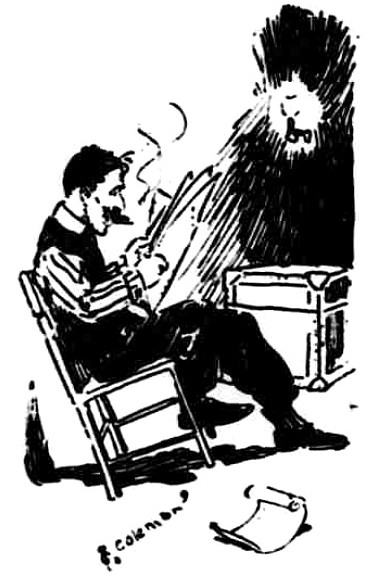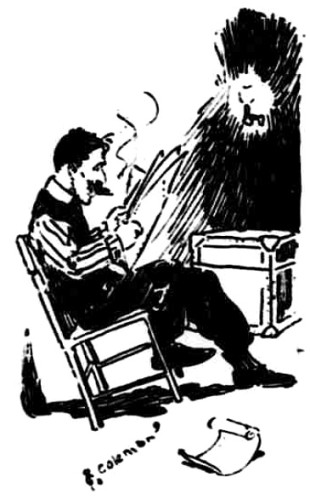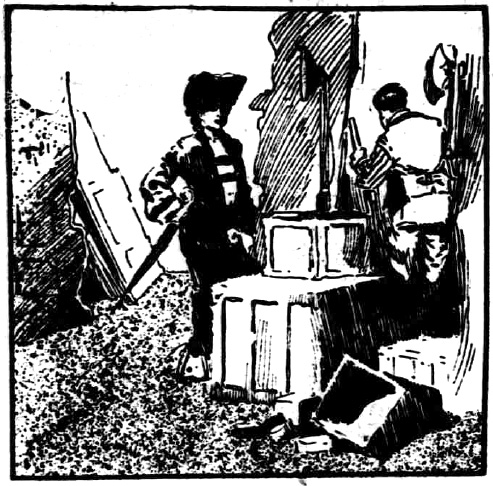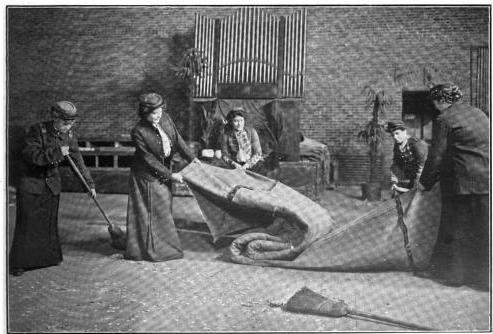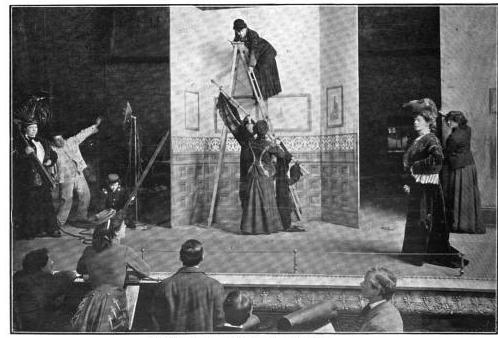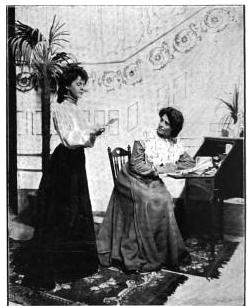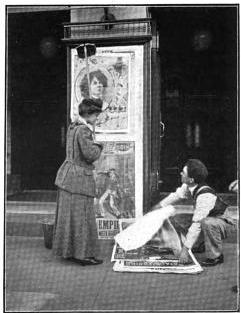The following is the third excerpt of an article which first appeared in 1905 in the St. Louis Republic. You can read the first part here and the second part here:
One can readily imagine the lack of imperial presence and the regal authority of Mansfield’s Richard minus the ermine robes and the crown and scepter. As greatly would the audience miss the “props” which go to make up King Dodo. The Virginian without his revolver in the climax of the closing act, which brings down Trampas and sends the spectators home satisfied with the turn of events, would better have left town before sunset. The property man is all that saves him and restores him to his winsome New England school ma’am.
A visit behind the curtain to James L. McCarrick, the property man who is responsible for all the matters of seeming minor importance in “The Virginian,” brings out the importance of this official when the final and desired result is accomplished of giving to a dramatic production the genuine and realistic settings and accessories which are demanded now by the theatre-going public.
In days of old, when McCarrick was new at the business, say twenty-five years ago, any old thing would do for a stage dinner. Cold tea in a black bottle answered the requirements of beer, champagne or soothing sirup. A loaf of bread stood for the usual essentials of a square meal. The audience was satisfied and the actors had to be. One big costumer’s shop in the city was the rendezvous for the manager about to exploit a new play. There he could pick out a wardrobe for each individual member of his cast without leaving the house. War bonnets and tomahawks for the Indian braves, velvet and glittering ornaments for the court ladies and uniforms for the soldiers which were suitable for any army of any nation. Out of the same box came equipment which would permit anything but the most presuming theatrical venture to be staged and with the utmost satisfaction as far as the public was concerned.
To-day it is an entirely different proposition, as is evidenced by the “stunt” which Mr. McCarrick was called upon to perform ere he had secured sufficient properties to permit the first production of such a simple-appearing play as “The Virginian.”
Now there is a definite and certain disappointment if there is lacking the least detail of costume or stage settings evident to the discriminating audiences which at every performance of a play are prepared to criticise the least fault. Everything must be perfect and managers have bent to the popular demand in this line, and money without stint is expended to satisfy this very demand, costumes, scenery and smaller paraphernalia now ordinarily costing much more than do the actors receive in salaries.
Originally published in The St. Louis Republic, January 1, 1905.

